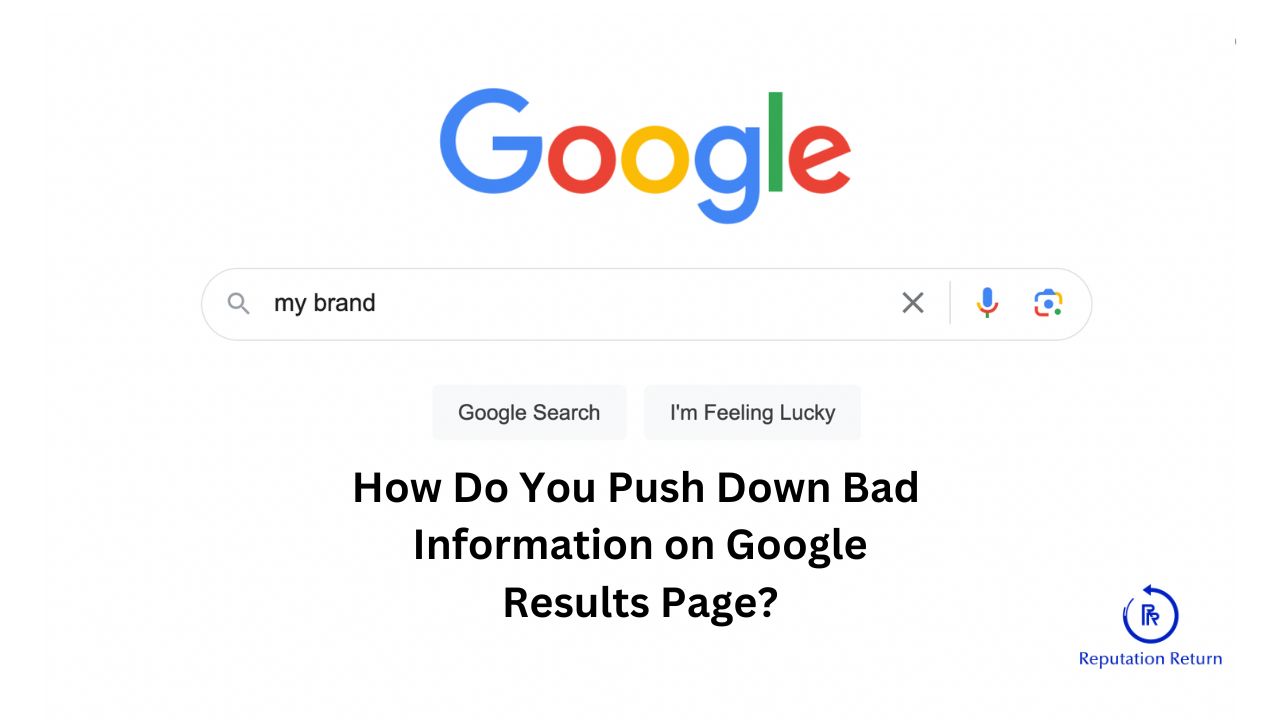Your online reputation is crucial. VERY!
Negative information appearing in Google search results can significantly impact your personal and professional life. Emotionally and financially. Whether it’s a bad review, a slanderous blog post from an “ex” whatever, or outdated information, there are strategies you can employ to push down this bad information and ensure that positive content takes its place.
Here’s a comprehensive guide to help you manage your online presence effectively.
Understanding the Impact of Negative Information
Before diving into the strategies, it’s important to understand why bad information in Google results can be so damaging.
A study by BrightLocal found that 91% of consumers regularly or occasionally read online reviews, and 84% trust online reviews as much as personal recommendations. This shows the power of search results in shaping public perception.
Negative information can:
1 Damage Personal Reputation: Negative articles, posts, or reviews can harm your personal relationships and social standing.
2 Harm Your Professional Opportunities: Potential employers or business partners often search for your name online. Negative search results can lead to missed job opportunities or business deals.
3 Cause Emotional Distress: Seeing negative information about yourself online can be very distressing and impact your mental well-being.
Strategies to Push Down Bad Information
1 Search Engine Optimization (SEO)
SEO is a powerful tool to push down negative content by promoting positive content higher in search results. Here’s how to use SEO effectively:
• Create High-Quality Content: Write articles, blog posts, and create other forms of content that highlight your achievements, expertise, and positive aspects of your personal or professional life. Use relevant keywords to improve the chances of this content ranking high.
• Optimize Existing Positive Content: Ensure that any existing positive content about you is optimized for search engines. Update old content with new information and SEO-friendly keywords.
• Use Backlinks: Acquire backlinks from reputable websites to your positive content. This increases the authority of your content and improves its ranking in search results.
2 Leverage Social Media
Social media platforms have high domain authority, meaning they rank well in search engine results. Use this to your advantage by:
• Creating and Updating Profiles: Ensure that you have profiles on major social media platforms like LinkedIn, Twitter, Facebook, and Instagram. Regularly update these profiles with professional and positive content.
• Engaging with Your Audience: Actively engage with your followers by sharing positive news, interacting with posts, and participating in discussions. High engagement levels can improve the visibility of your social media profiles.
• Publishing Content: Regularly post content on these platforms, including articles, updates, and professional achievements. Use keywords relevant to your field to enhance search engine visibility.
Personal Website and Blogs
Creating a personal website or blog is a powerful way to control the narrative about yourself:
• Build a Professional Website: Create a website with your name as the domain (e.g., www.yourname.com). Populate it with positive content such as a bio, portfolio, blog posts, and contact information.
• Regular Blogging: Start a blog on your website and regularly post articles related to your expertise, interests, or industry. Use proven and safe SEO strategies to ensure these posts rank well in search results.
• Guest Blogging: Write guest posts for reputable blogs and websites in your industry. This not only improves your visibility but also helps build backlinks to your personal website.
4 Online Reviews and Testimonials
For businesses or professionals, online reviews can significantly impact reputation. Here’s how to manage them:
• Encourage Positive Reviews: Ask satisfied clients or customers to leave positive reviews on platforms like Google My Business, Yelp, or industry-specific review sites.
• Respond to Reviews: Engage with all reviews, especially negative ones. Respond professionally and address any issues raised. This shows potential customers that you are proactive and care about their experience.
• Highlight Positive Testimonials: Display positive reviews and testimonials prominently on your website and social media profiles.
5 Utilize Online Reputation Management (ORM) Services
If the task seems overwhelming, consider hiring an ORM service. These companies specialize in:
• Creating Positive Content: ORM services can generate positive content tailored to improve your online presence.
• SEO and Backlink Strategies: They use advanced SEO techniques and establish backlinks to push down negative content.
• Monitoring Online Presence: ORM services continuously monitor your online reputation and address any new negative content promptly.
6 Legal Actions
In cases where negative content is defamatory, consider legal actions:
• Cease and Desist Letters: Have your lawyer send a cease and desist letter to the website or author of the defamatory content.
• Defamation Lawsuit: If necessary, file a defamation lawsuit. This is a more severe and often costly approach, but it can lead to the removal of false and damaging content.
Yes, there is much to do. We can do it for you. Take action to return your reputation.

